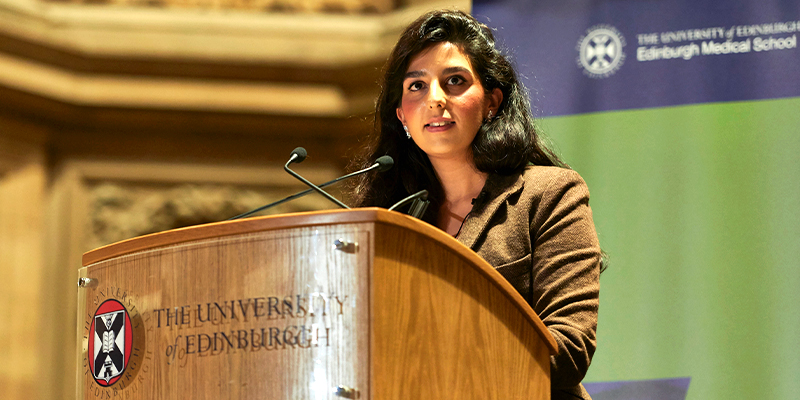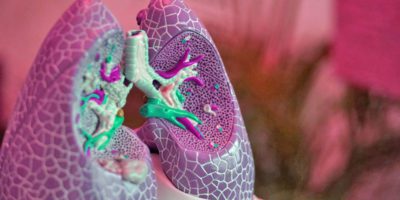Dr Fizzah Ali is a neurology registrar based at the Royal Free Hospital in London, working less-than-full-time. Fizzah is also the editor-in-chief of Medical Women’s Federation magazine, Medical Woman. She originally studied medicine at university, before going on to combine it with psychological medicine.
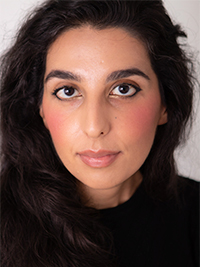
“I have taken away some important reflections, lessons, and alterations from the last year and a half or so. It seems as though we can never take time for granted. It feels important to expand horizons, to venture outwards and to explore inner hidden talents.”
An education that began with play and discovery
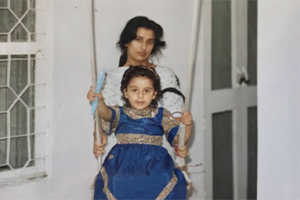
We sometimes forget how important play and discovery is for children as a form of education, so I would say that’s where my education started!
My mother has a degree in botany and zoology, and my father in physics, so it felt like there was always science around us at home. I am also quite creative, so I took subjects like art and literature through to GCSE and A-Level.
Directly after school, I studied medicine at the University of Birmingham — it felt like a good balance between humanity and an interest in biology.
From quite an early stage in medical school, I found myself interested in the brain and mind, so I also did a one-year degree at university in psychological medicine. This gave me an opportunity to learn about the overlap between the arts and medicine, learn more about the brain and mind, as well as conduct some research, including abroad in Italy.
Climbing up the medical training ladder
Since graduation, I have been working my way steadily up the medical training ladder. This started with two years of junior doctor rotations working through areas like orthopaedic surgery, sexual health medicine, and general practice.
I found myself moving around to the North Midlands for these jobs, and after two years I was back in the West Midlands for a few more years of training. This further training was in a variety of medical specialities like elderly care medicine, cardiology, and respiratory medicine.
After many years of training in the Midlands, I decided to move to London to continue training in my area of specialist interest — neurology.
Over the course of my clinical and research training, I have taken dedicated time away to focus on developing skills in leadership, management, and public health. I have also developed other more creative strands to my career, such as writing, editing, and also connecting with the media to talk about health and well-being matters, as well as wider issues affecting women.
The life of a neurologist
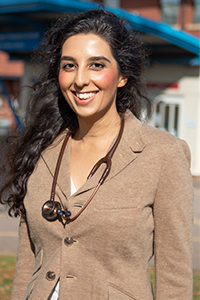
During the week, I also find time to identify and develop areas of clinical experience. For example, more recently I have been attending a paediatric hospital to learn more about babies and children with neurological problems.
Every month, I have a few evenings on-call (where a member of staff is available to be called for work, usually outside normal working hours). During this time, I support junior staff in the treatment of neurology and stroke ward patients.
I also have a bleeper so that I can respond to queries about patients with possible neurological problems in the hospital. At night when I’m on-call, I can be at home as the work usually involves responding to phone calls.
Being a neurologist is a very variable job. We also look after patients in our dedicated neurology ward. This can include people with conditions such as Parkinson’s disease, strokes and infections affecting the brain. It can also involve supervising various treatments through a drip and managing patients if they have a reaction or side effects to the treatment.
Less-than-full-time working
I started working on a less-than-full-time basis fairly early in my career. This has allowed me to divide my time between family commitments and my professional life, creating my own balance.
Looking back, I feel this way of working has been hugely advantageous for me. It has allowed me to spend time with the people who are important to me on a personal level, to grow as an individual, and to develop different career strands. I have been able to carve a unique path into a portfolio career.
In practice, it means that I spend three days a week in the hospital. It can be challenging to work this way and can require greater organisation, adaptability, and time management. Fortunately, as less-than-full-time working has become better known over the years it has also become more accepted and positively perceived within the medical community.
Happy doctors, happy patients
I see medicine as an intensely humanitarian and caring profession. Wider life experience and learning can help develop deeper insight into the human condition, empathy, and a broader skill set to add to our work.
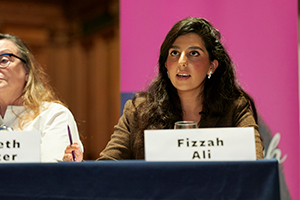
Over the last ten years, I perceived a cultural shift within the profession. There is a greater emphasis on self-care as professionals. Additionally, the availability of flexible working and the more positive conversations we have around flexible working add to a more diverse workforce. These are all positive steps in the right direction.
Furthermore, an education on the less conventional routes within medicine, earlier on in our training and careers, will add to allowing doctors to make the most of their skills and attributes inside and outside the profession.
Additionally, encouraging doctors to use their creative powers may help individuals recognise their skills and harness these to develop more personalised career trajectories.
Impacts of COVID-19
At the beginning of the pandemic, our efforts were focused on the response. There was a shift away from seeing people with specialist neurological conditions, over to practising medicine directly to tackle the virus and the influx of people coming into hospital with COVID-19.
As we have emerged out of the darkest periods, we have seen our clinic work return. This was initially being conducted over the telephone and then phased into a return to face-to-face consultations. During the height of the pandemic, our ward housed people with COVID; as the cases have declined, we have also seen a return to our usual in-patient work.
The pandemic has posed a novel situation in medicine, requiring a closer look at the effects of the virus on humans, including the effects it can have on the nervous system. On a daily basis, we give consideration to the new virus and the impacts it can have on people with neurological conditions receiving special treatments.
It has also posed an area of uncertainty requiring investigation. Recently, I have been involved in collecting data for a project on COVID-19 in people with Parkinson’s disease.
Supporting women in medicine
The Medical Women’s Federation (MWF) was founded in 1917 and is today the largest and most influential body of women doctors in the United Kingdom.
MWF aims to promote the personal and professional development of women in medicine. The organisation campaigns for supporting access to a less-than-full-time working, supporting working carers, and flexible retirement.
Women are key to society’s health and well-being. Yet, there are still many areas where women’s health needs are not well met, and MWF campaigns to improve the health of women and their families in society.
The power of connection
Over the course of my career journey, I have decided to look to the line of strong women I come from for inspiration, both personally and professionally. In some ways, this helped fill a mentorship void that existed earlier in my career.
I was driven to join the MWF through the desire to connect with fellow female doctors, to broaden my horizons, and by the belief that visibility matters. Young growing professional women from diverse backgrounds need to be inspired by women they relate to and perceive positively.
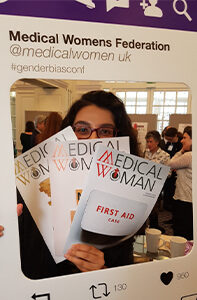
Most recently, as I have developed an interest in women’s health on a global scale, I have taken on a role with an allied organisation, the Medical Women’s International Association, as a national coordinator and representative. My hope is to campaign for issues affecting women around the globe and to help improve the health and well-being of women on an international scale.
Reflections, lessons, alterations
The last year and a half have been a rollercoaster of events; from lockdowns and panic buying to the changes in our work and private lives. As individuals, we might have dropped old habits, and picked up new ones.
I have taken away some important reflections, lessons, and alterations from the last year and a half or so. It seems as though we can never take time for granted. It feels important to expand horizons, to venture outwards and to explore inner hidden talents.
With this in mind, in my professional life, I am hoping to delve further into the world of research. I hope to involve myself more deeply in the welfare and well-being of women on an international level, perhaps even tasting practising medicine abroad for a short period of time.
I hope to continue to develop creative endeavours, and take more time to write and engage with the public through the media on health and well-being — something that I already enjoy very much.
On a personal level, after being wrapped away in several lockdown cocoons, I am ready to burst out, renew my acquaintance with the wider world, and try new things — whether new hobbies, conversations, or travels!
https://www.linkedin.com/in/dr-fizzah-ali-b813379b/
https://www.instagram.com/drfizzahali/
https://www.medicalwomensfederation.org.uk/
https://twitter.com/medicalwomenuk
https://www.facebook.com/MedWomen/
https://www.medicalwomensfederation.org.uk/news/medical-woman-magazine

